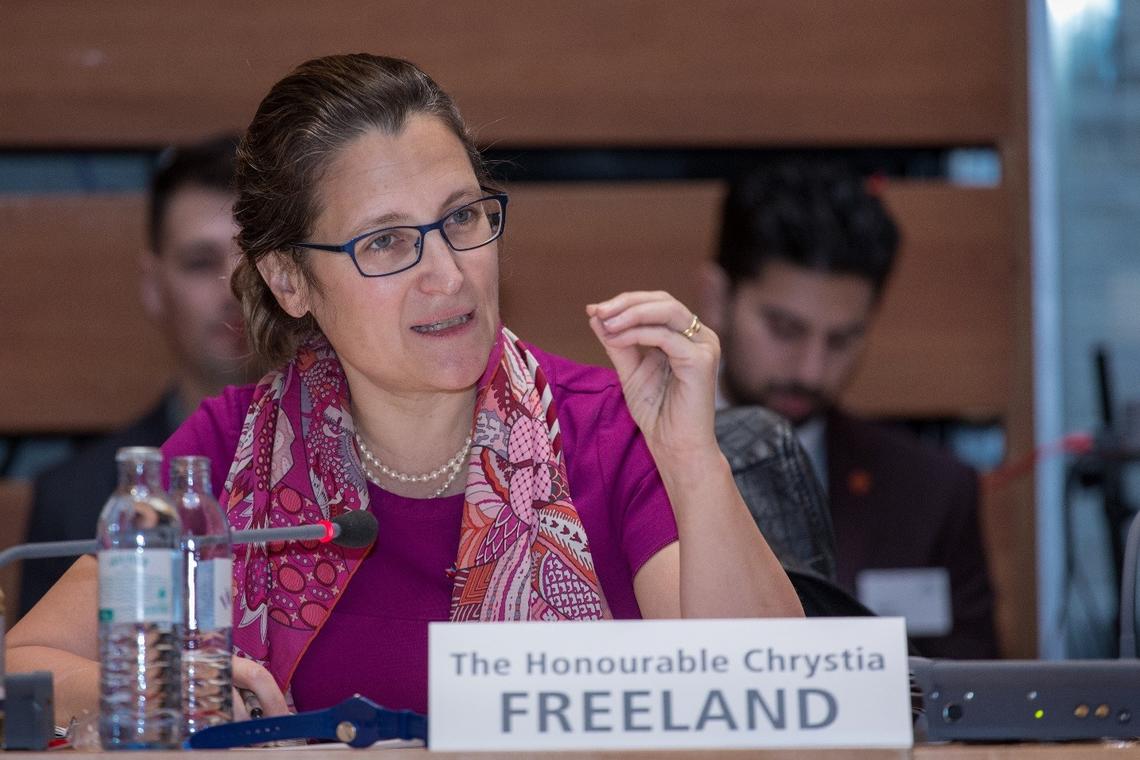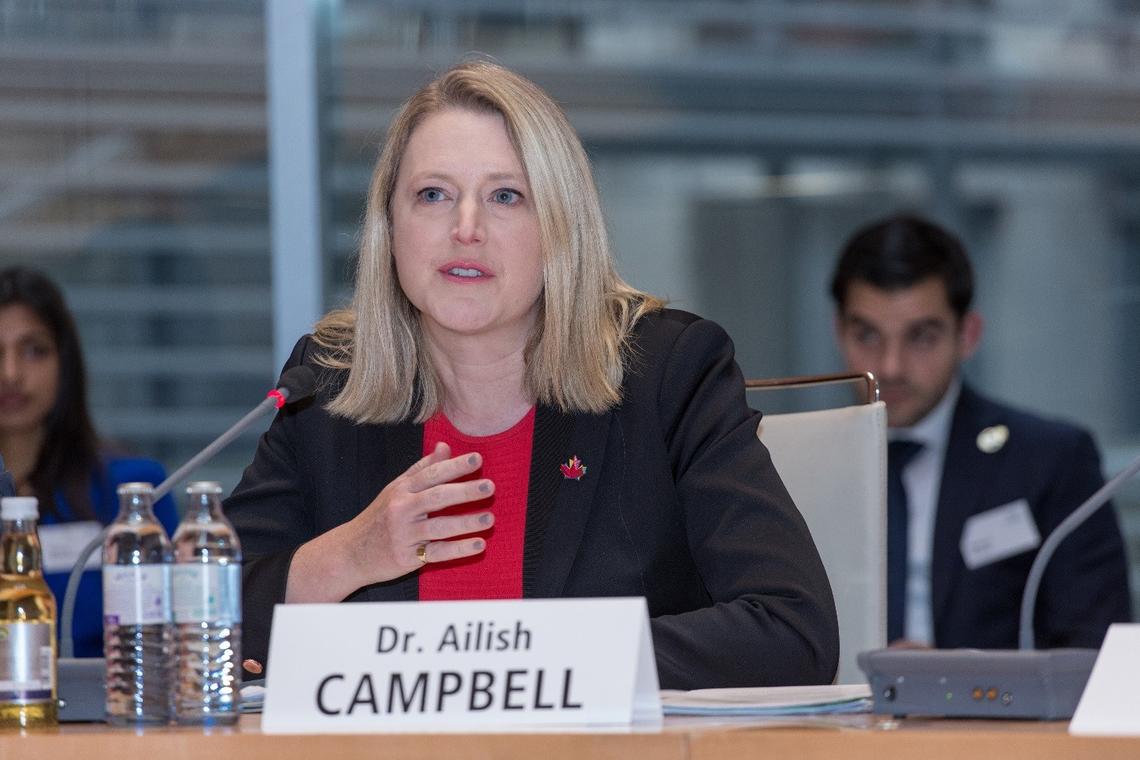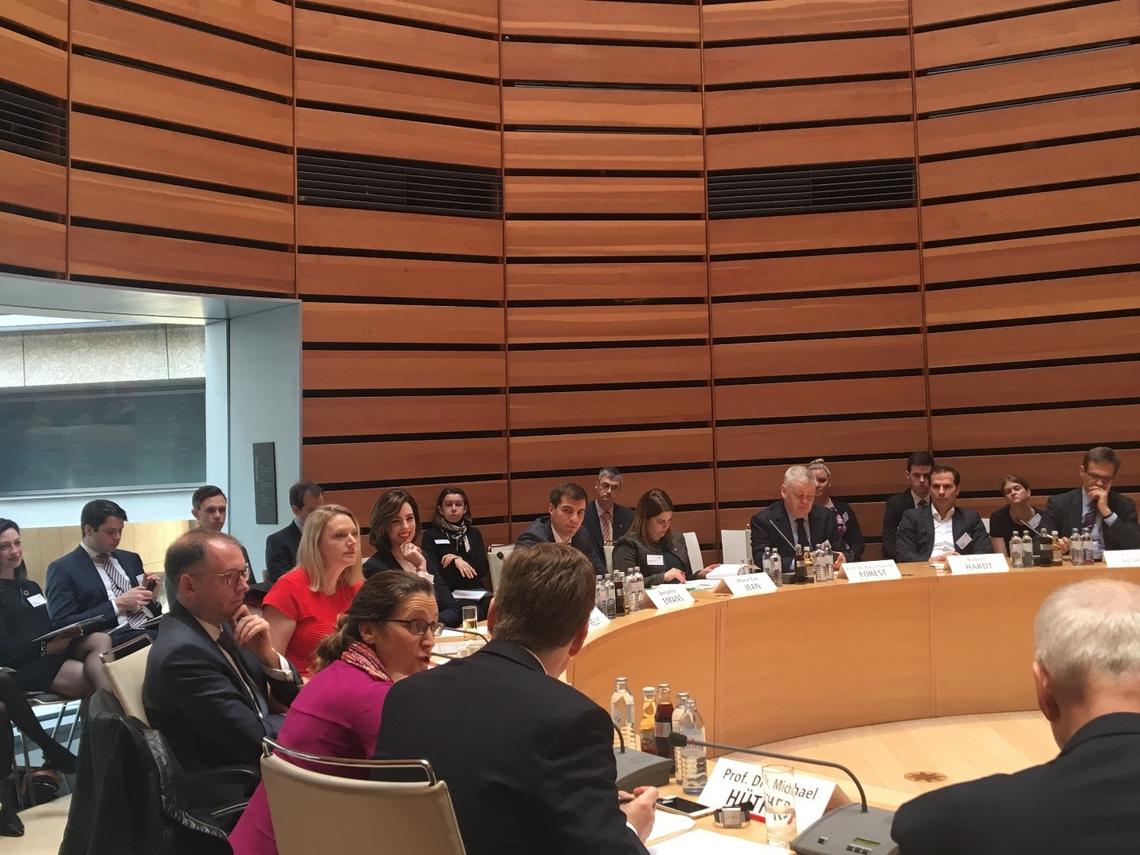Jan. 14, 2019
What can Canada and Germany learn from each other about multilateralism and international trade?

Minister Chrystia Freeland discusses the state of liberal democracies and effective multilateralism.
Amelie Losier
On Dec. 8, 2018, The School of Public Policy travelled to Berlin, Germany, to co-organize a roundtable discussion on multilateralism and implications of international trade. The roundtable was in conjunction with a gala award ceremony at which Chrystia Freeland, minister of foreign affairs, was presented with one of Germany’s highest honours.
The roundtable was organized in partnership with Atlantik-Brücke, a non-profit association founded in Germany to further friendship between Germany, the United States and Canada. The School is the home of Atlantik-Brücke Canada, the Canadian partner organization.
Freeland joined the roundtable to discuss the state of liberal democracies and effective multilateralism, leading a robust conversation about the rules-based international system and how Canada and Germany can work together, learning from one another as we navigate these turbulent times.

Ailish Campbell, Canada’s chief trade commissioner, at the roundtable discussion in Germany.
Amelie Losier
The roundtable also hosted Dr. Ailish Campbell, Canada’s chief trade commissioner and Dr. Ulrich Nussbaum, state secretary for economic affairs and energy in Germany, who discussed the implications of international trade in a changing global order. Issues such as ease of movement of people, digital security and the public perception were top of mind for participants, who talked about what Canada and Germany can learn from one another, as well as how our countries can work more closely together to continue to be leaders in the global trading community.
German participants agreed that in these turbulent times, Canada is an even more important ally than ever. The roundtable provided an opportunity to bring together representatives of the business, academic and political communities on both sides of the Atlantic for insightful conversation and meaningful debate. Hosted at the Canadian Embassy in Germany, the discussion also highlighted remarks from Ambassador Stéphane Dion, Canada’s ambassador to Germany, and HE Sabine Sparwasser, German ambassador in Canada.

Roundtable discussion on multilateralism and implications of international trade.
School of Public Policy staff
Dr. Pierre-Gerlier Forest, PhD, professor and director, James S. and Barbara A. Palmer Chair in Public Policy remarked, “The School’s fundamental mission is to build policy communities in which the best experts are engaged with private and public sector decision-makers. In an era of global problems, it is essential to pursue this goal beyond the borders of a single country and to partner with organizations such as Atlantik-Brücke, which aim at fostering fruitful conversations where various perspectives towards policy and international relationships are explored.”
Following the roundtable, Freeland was presented with the Eric M. Warburg Award by The School’s partners at Atlantik-Brücke. This award is presented for great accomplishments in transatlantic relations, and Freeland was honoured for her commitment to CETA (Comprehensive Economic and Trade Agreement). She is the first Canadian to receive the award, and as Atlantik-Brücke’s Canadian partner, The School was pleased to be in attendance to celebrate this honour.
